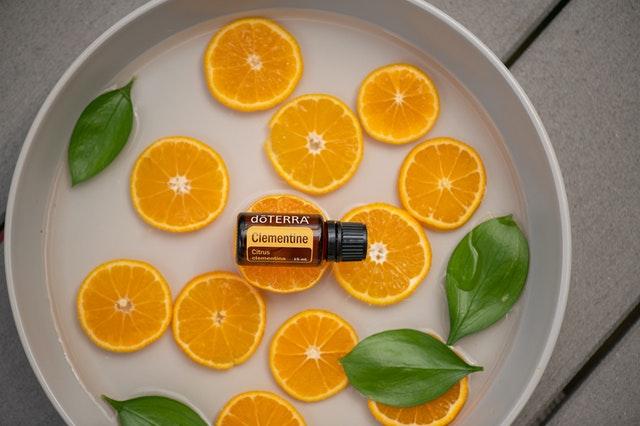“Do essential oils contain vitamins and minerals”? Are you looking for an exact answer? You have landed in the right place.
When you start looking for ways to incorporate self-care into your routine, you may come across many articles on the excellent benefits of essential oils. You may find the information challenging and overwhelming, as many of them would be claiming that essential oils contain all the nutrients your body needs to look and feel healthy.
If all these claims forced you to search for alternatives to your supplements, we recommend you to read this blog first because we will provide you with all the valid information and facts you need to know to make the right decision.
Vitamins And Minerals: why do we need them?
Vitamins and minerals are the essential micronutrients required by the body to perform various standard functions. However, these are not produced in the body, so we have to derive these from our food.
No doubt, our bodies’ structure and functioning are miraculous: every day, it produces new skin, bones, and muscles. The body uses red blood cells to carry oxygen and other nutrients to all the organs; it also sends signals to the brain to act on the given information. To carry out all these vital functions in a healthy manner, our body needs vitamins and minerals. In addition to that, these micronutrients also help in strengthening the bones, heal wounds, and boost the immune system.
Let’s talk about vitamins first:
There are two types of vitamins:
- Fat-soluble vitamins
- Water-soluble vitamins
Fat-soluble vitamins are A, D, K, and E, while water-soluble vitamins include B & C.
It is important to note that there is a difference in the solubility of these nutrients and essential oils.
Essential Oils and Nutrition:

While It is true that essential oils are beneficial in so many ways; and you can add these to your wellness routine. It is also the fact that they do not contain any minerals or vitamins needed to sustain a healthy lifestyle. Which means you cannot take these as a substitute for supplements.
The reason essential oils can’t replace a nutritional supplement is because of the difference in solubility, as discussed earlier, and also because of their extraction process.
There are two ways to extract essential oils:
- Steam Distillation
- Cold Pressed Method
Steam Distillation
Most essential oils such as cbd essential oil are extracted from plants through steam distillation (where the plant’s raw material is placed (at 100-212 degrees), and steam passes through the plant. It is then cooled, and the resulting material is collected. Steam distillation separates volatile material (essential oil) from the non-volatile material (water).
All the nutrients that the host plant contains remain residue in the finished product’s water portion through steam distillation.
Cold Press Method
Interestingly, Vitamins and essential oils have some similarities.
- Vitamins like B. C. are water-soluble
- they are volatile like essential oils
- They degrade on heat and oxidation.
Because of the highly volatile nature of vitamin E, cbd essential oil for skincare infused with citrus plants like orange blossom, Argan, Avocado, Rosehip, Peach Kernel, Pomegranate & Evening Primrose Oils will helps to reduce the appearance of fine lines, age spots and scars, as well as nurturing the skin.
Now the question arises ‘do essential oils have vitamin C’?
There has been a lot of debate about whether essential oils have vitamin C or not. Because of the volatile nature of vitamin C, like that of essential oils, many people believe that it can cross over into an essential oil during the cold-press method.
While it is true that essential oil is extracted through the cold-press method, it may contain some traces of vitamin C, but most of it remains in the water as residue.
Therefore, it is not recommended to use vitamin C, essential oil to replace a dietary source or nutritional supplement. If you want to enjoy the actual benefits of vitamin C, eat a natural lemon or grapefruit instead.
Essentials oils and vitamin K

Fat-soluble vitamins like A, D, and K are lipophilic. (lipid-loving or dissolved in fats)
Two things should be considered when we talk about fat-soluble vitamins.
- Lipids degrade quickly on heat.
- On steam distillation, the only components left are those which are volatile when we extract essential oils.
Therefore, if you are wondering about using essential oils or replacing your supplemental needs, essential oils are not the option.
What about Minerals?
Minerals are also hydrophilic (water-loving), and through the steam distillation process, they are also left behind with water.
The most beneficial way to get these essential nutrients is to eat a healthy, balanced diet. Because we all believe the saying ‘You are what you eat.
Conclusion:
what we have learned from this article is that,
- Essential oils contain very little to no nutrients at all. It means the answer to the question “Do essential oils contain vitamins and minerals” is a simple NO.
- But apart from this, essential oils are amazingly beneficial, as they can improve your physical and mental conditions.
Do essential oils contain carbohydrates or any vitamins or minerals? Indeed, essential oils don’t have any nutritional value. Therefore, they can not replace the supplements, but they enhance the bioavailability and ability to absorb them when mixed with food or shakes. Even if they don’t provide nutrients, they still help our bodies make their vitamins by boosting the body’s essential functions and supporting the nutritional needs.















